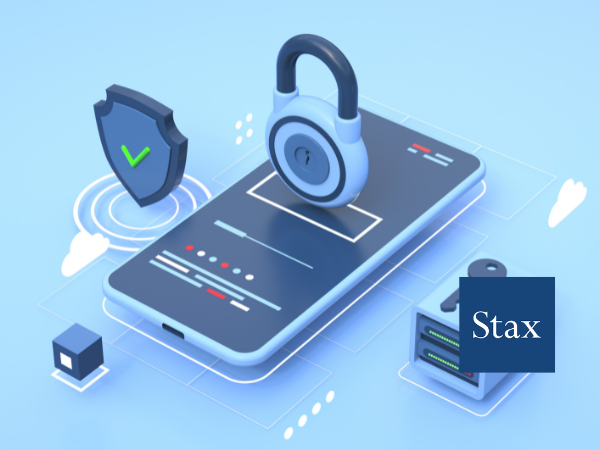Artificial Impact on EdTech in K-12
Artificial Impact on EdTech in K-12
Intro
Growth in U.S. K-12 EdTech spend is trending upward, fueled by the pandemic-induced restructuring of the education system. Adoption of EdTech in classrooms continues as teacher comfort surrounding these digital tools has improved significantly since the beginning of Covid.
Now, with the recent surge in AI capabilities and with the release of ChatGPT, many are wondering what role AI will play in school systems and how this will impact students. While many see the benefits, AI poses many questions and challenges. Will learning efficacy decline? Will students be more prone to increased plagiarism and cheating? Will teachers embrace efficiency or burnout from needing to transform their instruction and approach?
EdTech Growth
Although EdTech adoption in primary and secondary education prior to the pandemic was increasing at a steady rate, the pandemic significantly bolstered this adoption with the shift to remote learning driving a more EdTech-reliant ecosystem. This spike was largely due to the CARES Act (Coronavirus Aid, Relief, and Economic Security Act) and essential capital spending on EdTech to enable remote learning. This acceleration in spending was most profound in institutions that had to scramble to issue computing devices, software, and urgent training for teachers and students.
Teachers who were less accustomed to technology before the pandemic have now gained increased familiarity with its usage throughout various aspects of teaching. 87% of teachers stated their ability to use technology had improved after the pandemic and building closures, according to a survey conducted by EdWeek Research Center.
While hybrid and digital learning have become normalized, the advent of access to generative AI tools provides complications and questions as to the impact to students, teachers, and parents. The speed at which change is happening is rapid and the K-12 classroom is not immune, and while it will continue to evolve and time will tell, there are initial benefits and challenges to both K-12 students and teachers.
Benefits of AI for Students
While parents may be hesitant and concerned about the potential downsides provided by AI, they generally want what is best for their child(ren). Parents are seeking more specialized and uniquely tailored learning, which AI aides in providing.
Personalized instruction
AI-based tools can be used to supplement teacher-based instruction, having the added benefit of personalizing curriculum content and style for individual learners. The student-centered learning approach being reliant on technology tools can increase student engagement and collaboration with teachers.
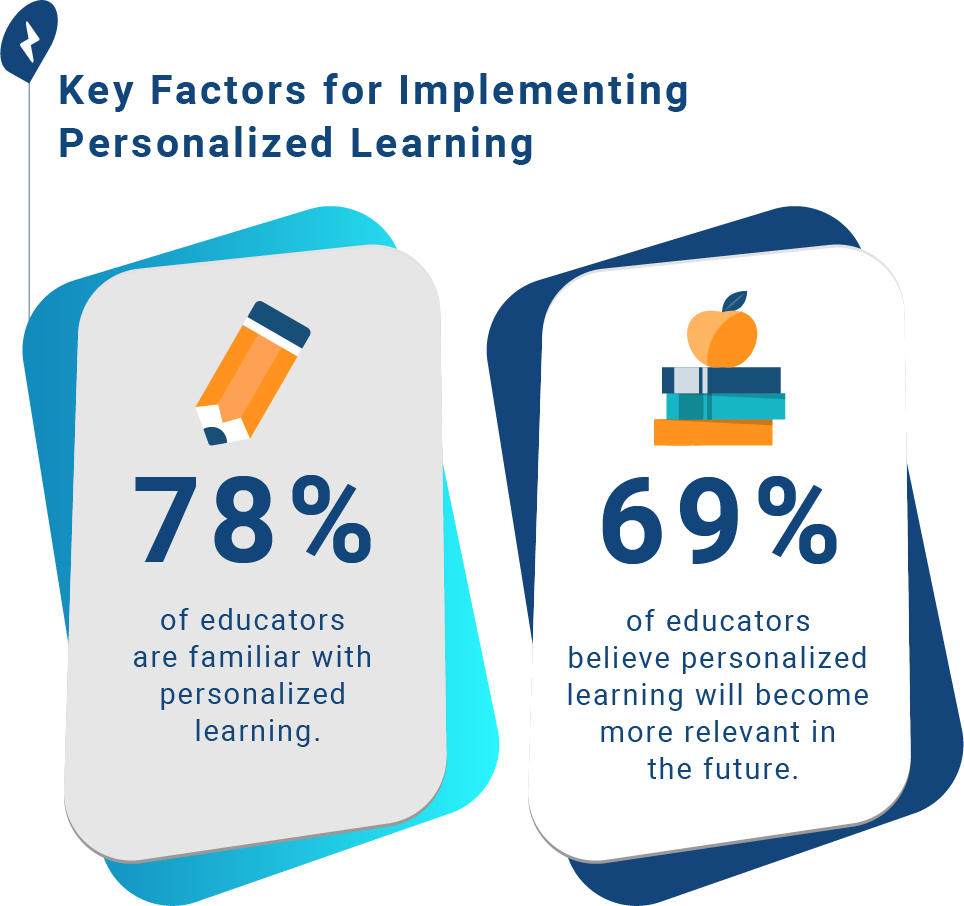
Counseling and student safety
Another area where AI can benefit students is through student safety. AI’s language processing and conversational capabilities can be used to offer students a more personalized counseling experience that may prove to be more effective than traditional in-school counseling.
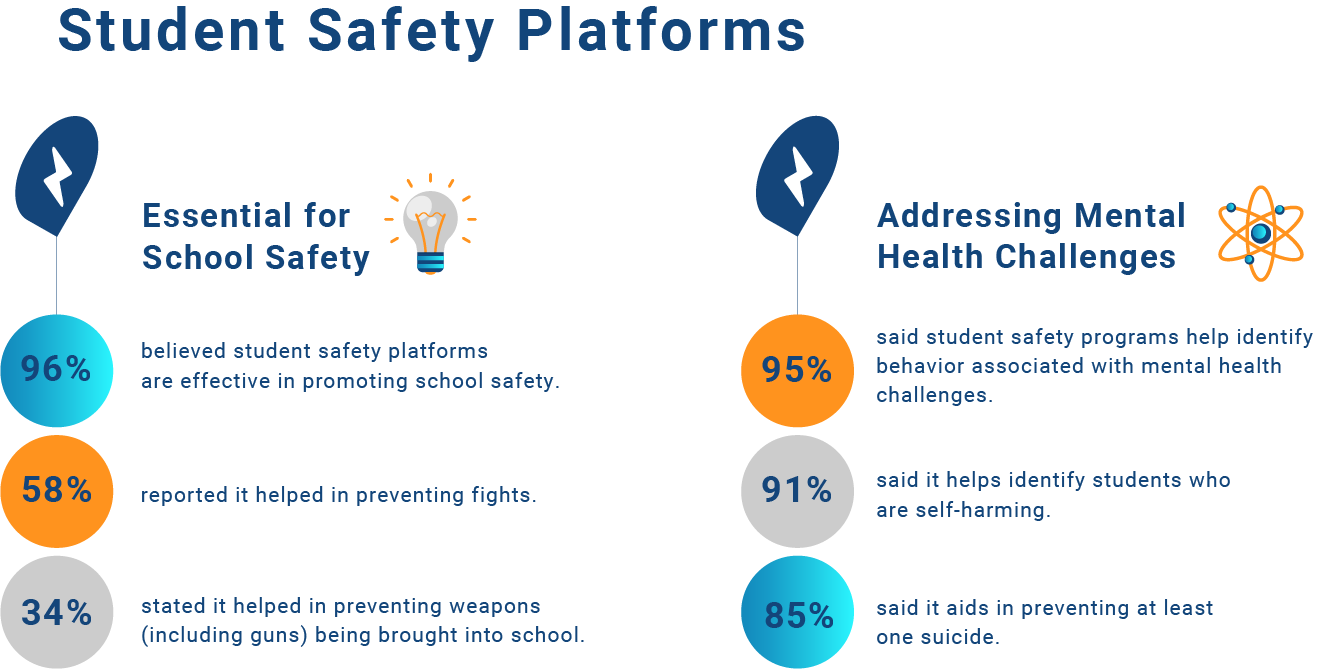
Accessibility and disability support
AI-enabled technologies such as intelligent tutors and textbooks, as well as wearable-assistive technology, can be leveraged to support students with physical and/or learning disabilities.
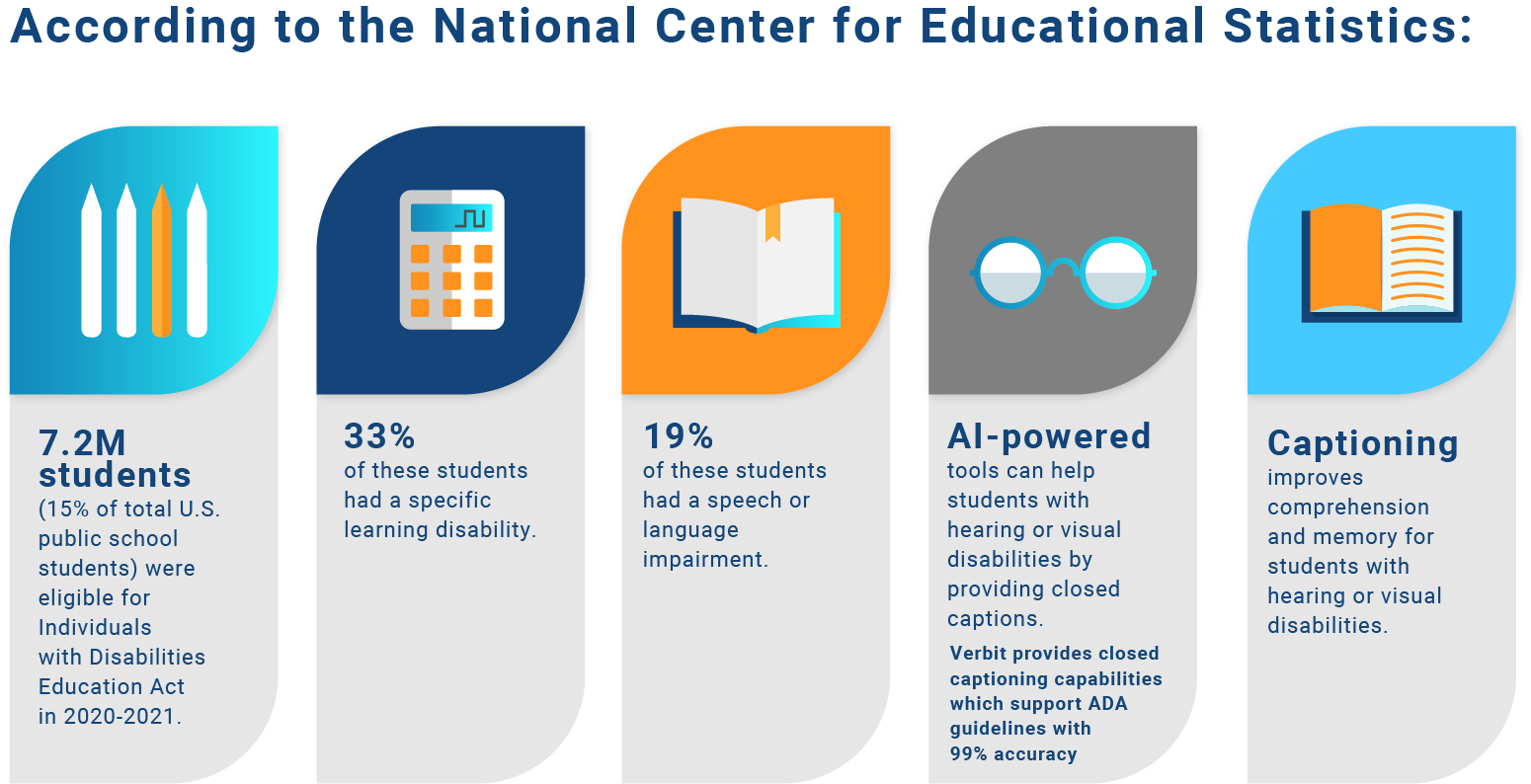
Benefits of AI for Teachers
Teachers also stand to benefit from AI advances. Several menial aspects of a teacher’s job could be left to automation and AI tools. By delegating specific, time-heavy tasks, teachers will have more free time to teach to students and focus on developing a curriculum which better engages their classrooms.
Increasing productivity
Teachers will have more time to focus on their students and lessons to create a more personalized and engaging experience in the classroom.
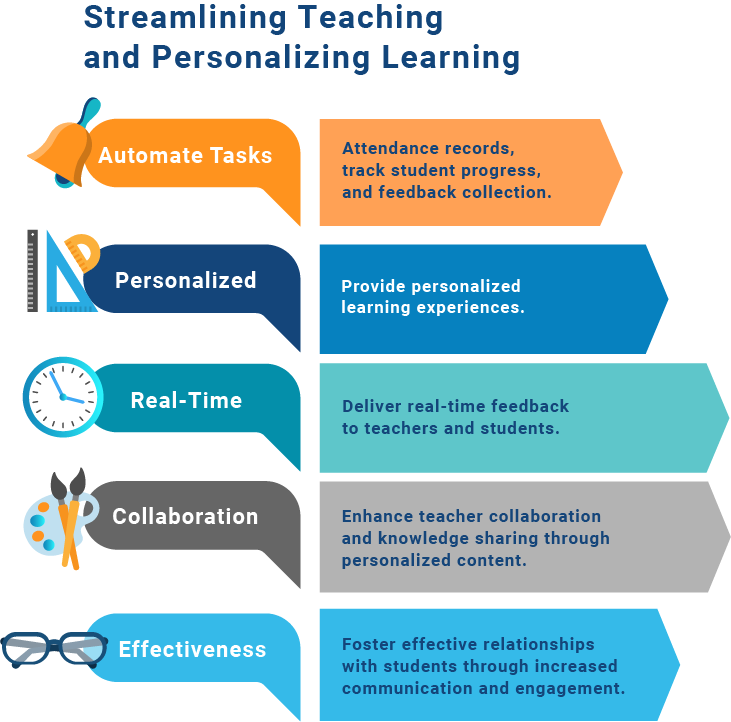
Automated grading and lesson planning
Through the use of AI, teachers will be able to automate time-heavy tasks such as grading and lesson planning to free up more time and provide their students with a better classroom experience.
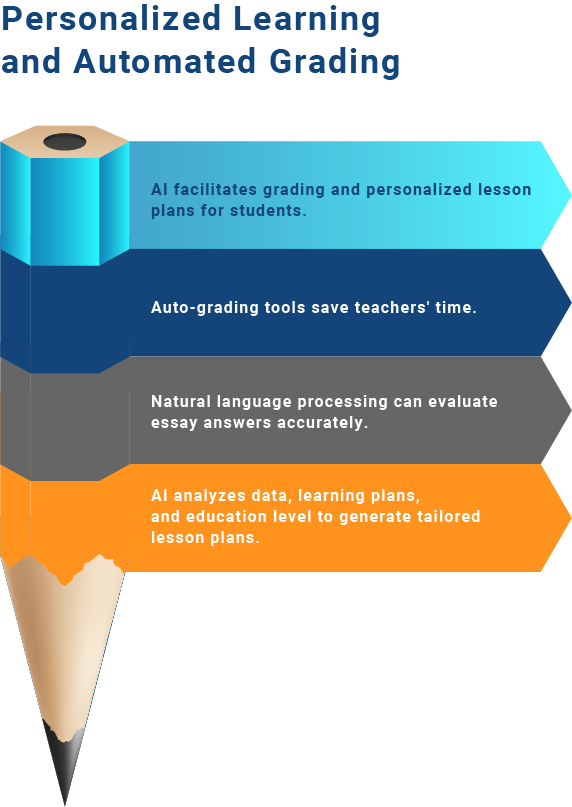
Increased collaboration
Teachers will be more enabled in their collaborative efforts through the use of AI, which will allow them to share knowledge and create more impactful interactions.
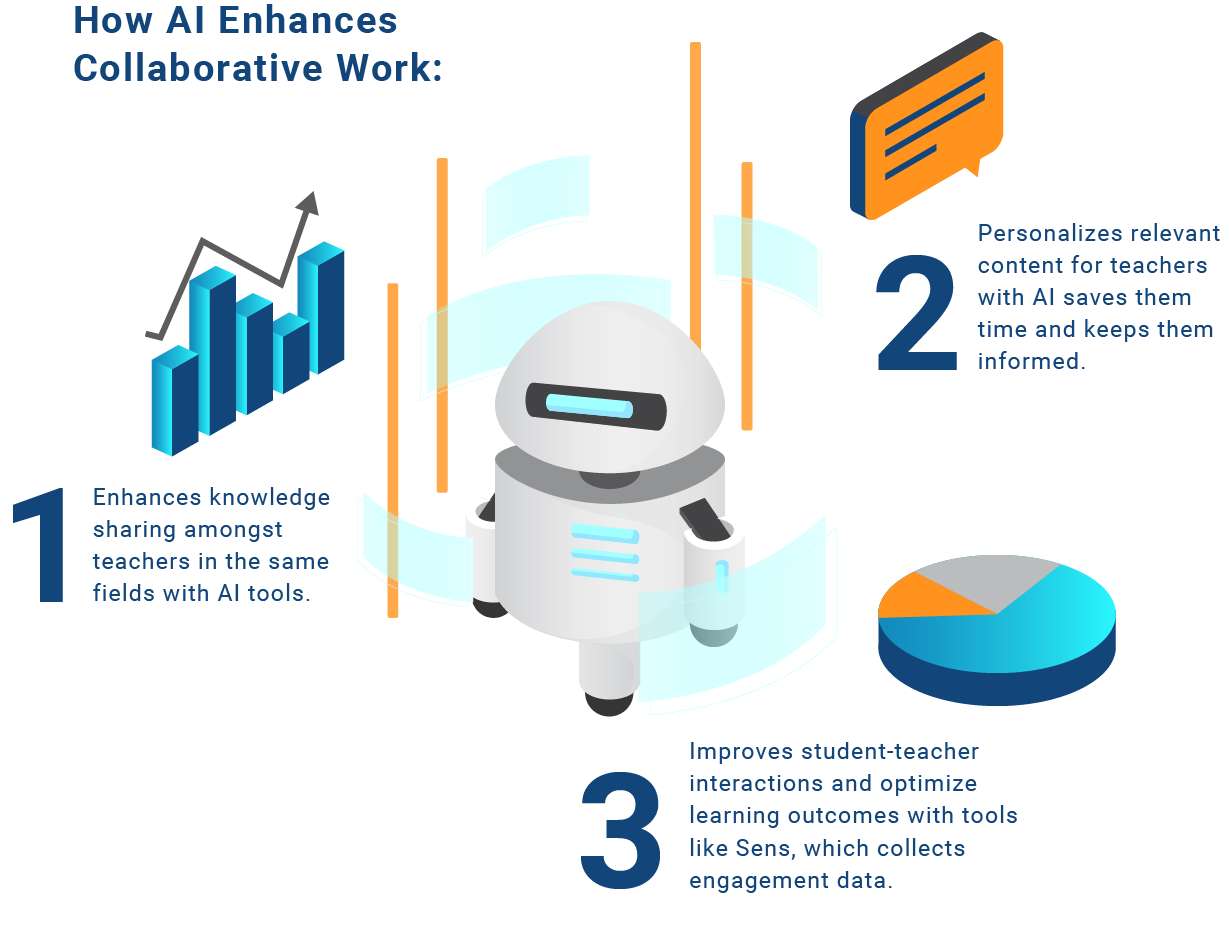
The Challenges Facing AI in Classroom Implementation
While students and teachers may get excited by the prospect of efficiencies and personalization that AI could bring to the classroom, we must be cautious to also acknowledge concerns with AI in the classroom.
Privacy concerns
One of the major ethical issues surrounding the use of AI in K-12 education relates to the privacy concerns of students and teachers as users expose an excessive amount of personal information in online platforms.
According to researchers from Michigan State, initial privacy-related problems in applying AI in K-12 settings include compromising students’ privacy by exploitation of data via face recognition and recommender systems, as well as monitoring student activities via personalized-learnings systems.
Although consent requests are designed to be protective measures and to help alleviate privacy concerns, many individuals give their consent without knowing or considering the extent of the information (metadata) they are sharing, such as the language spoken, racial identity, biographical data, and location. Researchers found that such uninformed sharing undermines human agency and privacy.
Lack of human interaction
Lack of social interaction between instructors and learners could pose issues, both real and perceived, in terms of communication and presence.
While students felt uncomfortable with the measurement of their unconscious behavior, such as eye tracking or facial expression analysis, and felt like it was similar to being under surveillance, instructors were negative about relying on AI interpretation to understand students’ social interaction cues.
Overreliance on technology
Standardized and excessive support provided by AI in learning systems could negatively influence students’ ability to learn effectively and diminish students' opportunities for exploration and discovery.
A 2021 research paper published in the International Journal of Educational Technology in Higher Education—based on a study of students and instructors in the context of adopting AI systems in online learning, student respondents felt that usage of systems that collect engagement data would “over standardize” the learning process by prescribing how an engaged student would or should act. Several other students were concerned they “wouldn’t put that much effort” into their group projects because “it might just end up with AI doing all the work for them.”
Similarly, instructors were concerned students could lose opportunities to learn new skills or learn from their mistakes. AI would not be beneficial in standardizing inconsistent group projects since part of an instructor’s job is “helping people understand how group work is conducted, and if you’re just laying on a simple answer, you miss that opportunity.” Other instructors, primarily those in humanities-based fields, were concerned “it may take the creativity away from the students” since students’ projects “can be hugely different from each other, yet equally good,” and suggestions based on historical data could steer students towards certain directions.
Conclusion
As AI continues to evolve, implementation across the education sector will continue to be a focal point for teachers, parents, and students. Students and teachers can both benefit from the opportunities AI provides; however, many parents and educators remain skeptical about AI. In truth, AI is still a relatively new concept and the rapid pace of evolution we’re seeing in the space leaves a lot of possibilities on the table. As with all technological disruptions, opportunities tend to present themselves and there are winners and losers. Private equity investors are no doubt intrigued and wondering how AI will impact the EdTech and K-12 classroom.
If you’re looking to gain a deeper understanding of software and technology or the education industry, Stax- a global strategy consulting firm, is here to help.
Read More
All Rights Reserved | Stax LLC | Powered by Flypaper | Privacy Policy



